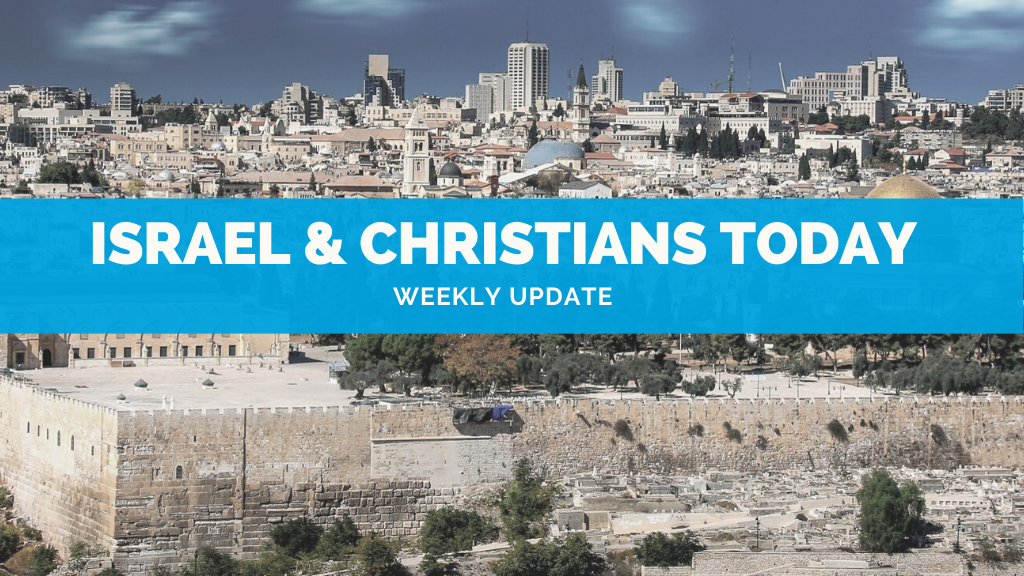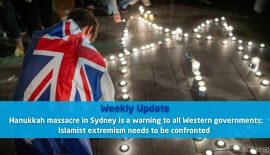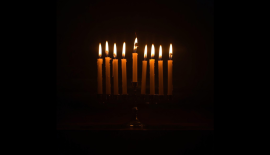Light in the darkness
In the second century BCE, the Jewish people lived under the influence of two Greek principalities, one in Egypt and the other in Syria. They were the descendants of the general Alexander the Great who had brought the entire Middle East into contact with Greek culture. Between 170 and 164 B.C., a terrible war raged in Israel between people who wanted to go along with the new era and make Jerusalem a Greek city and the orthodox Jews who sought to maintain Jewish identity. The violence had started with the murder of the high priest. The war even led to the desecration of the temple after three years: pig sacrifices were brought and the progressive party even placed a statue of the Greek king in the Holy of Holies. Thus, the morals of the pious would be broken. Yet the small army of pious Jews defeated the mighty power of Antiochus Epiphanes. The tiny light in the Temple remained alight, miraculously. After the Temple was cleansed and rededicated, a new feast was added: Hanukkah, the feast of the Temple’s renewal.
On each night of the eight-day festival of Hanukkah, one additional candle is lit, until all eight candles are lit together on the final night of the festival.
This year, the beginning of the feast of Hanukkah coincides with the beginning of the Christian season of Advent, a time traditionally devoted to focus on the coming (advent) of Messiah, who is the Light of the world. The festival of lights thus coincides with the festival of Light.
Hanukkah presents a challenge for the (mainly) Gentile church. For two millennia we have assumed that we Gentiles are God’s people, and that there is no place any more for ethnic Israel. But the Jewish people are being restored, as a light to the world. They are evidence that God is sovereign, and faithful to His promises. He will not abandon His people; the light of Hanukkah will continue to shine in this world of increasing darkness.
The nations, and world religions of Islam and Christianity, experience the restoration of the Jewish people to the land as an affront to their identity. That is why they react so strongly. They can’t abide the light. This partly explains the political, military and ideological warfare against the Jewish State of Israel.
In this Hanukkah/Advent season, it is good for us Gentile believers in the God of Abraham, Isaac and Jacob to ask ourselves: what is our identity? Are we rooted in the whole word of God – including the prophecies of the Old and New Testaments? Do we understand the deep significance of the fact that we, wild branches, have been grafted into the olive tree of which the Jewish people are the natural branches (Romans 11)? Are we looking for the coming of the Messiah, the Light of the world (John 8:12), who will reign from Jerusalem “in the midst of His people Jacob” (Luke 1) – or are we being distracted and misled by the spirit of our age?
We encourage you to follow Johannes Gerloff’s teaching series as he leads us through Romans 9-11: Paul’s amazing explanation of God’s dealings with Jews and Gentiles. This week’s episode is about God’s unfathomable sovereignty.
Coming Home
Kay Wilson writes at C4Israel: “In India’s Northeastern border there are about 3.7 million people, all with various creeds and religions. Among them, are a few thousand, who for several years, have adhered to practicing Judaism because they see themselves as Jews. The roots of the claims are fascinating. Back in the 1950’s, one of the tribal leaders claimed he had a dream in which it was revealed that his people’s ancient homeland was none other than the State of Israel. The news of the dream spread throughout the tribe, and in the 1970’s they all began to study and practice Judaism with the hope they could return to the religion and land of their ancestors.”
Israel, Light to the Nations
Rev. Henk Poot writes at C4Israel: “Israel has been chosen by God. But as God’s chosen one, the people of Israel are also God’s servant with the high calling to be a light to the world.”
‘The world won’t lift a finger’ against Iran, former Israeli national security official says
Israel Kasnett writes at JNS: Speaking at the Institute for Policy and Strategy Conference, former National Security Advisor Yaakov Amidror insisted Israel must develop the capability to destroy Iran’s military nuclear program on its own.
Scripture for the week:
14 What then shall we say? Is God unjust? Not at all! 15 For he says to Moses,
“I will have mercy on whom I have mercy,
and I will have compassion on whom I have compassion.”
16 It does not, therefore, depend on human desire or effort, but on God’s mercy. 17 For Scripture says to Pharaoh: “I raised you up for this very purpose, that I might display my power in you and that my name might be proclaimed in all the earth.” 18 Therefore God has mercy on whom he wants to have mercy, and he hardens whom he wants to harden.
19 One of you will say to me: “Then why does God still blame us? For who is able to resist his will?” 20 But who are you, a human being, to talk back to God? “Shall what is formed say to the one who formed it, ‘Why did you make me like this?’” 21 Does not the potter have the right to make out of the same lump of clay some pottery for special purposes and some for common use?
22 What if God, although choosing to show his wrath and make his power known, bore with great patience the objects of his wrath—prepared for destruction? 23 What if he did this to make the riches of his glory known to the objects of his mercy, whom he prepared in advance for glory— 24 even us, whom he also called, not only from the Jews but also from the Gentiles? 25 As he says in Hosea:
“I will call them ‘my people’ who are not my people;
and I will call her ‘my loved one’ who is not my loved one,”
26 and,
“In the very place where it was said to them,
‘You are not my people,’
there they will be called ‘children of the living God.’”
27 Isaiah cries out concerning Israel:
“Though the number of the Israelites be like the sand by the sea,
only the remnant will be saved.
28 For the Lord will carry out
his sentence on earth with speed and finality.”
29 It is just as Isaiah said previously:
“Unless the Lord Almighty
had left us descendants,
we would have become like Sodom,
we would have been like Gomorrah.”




